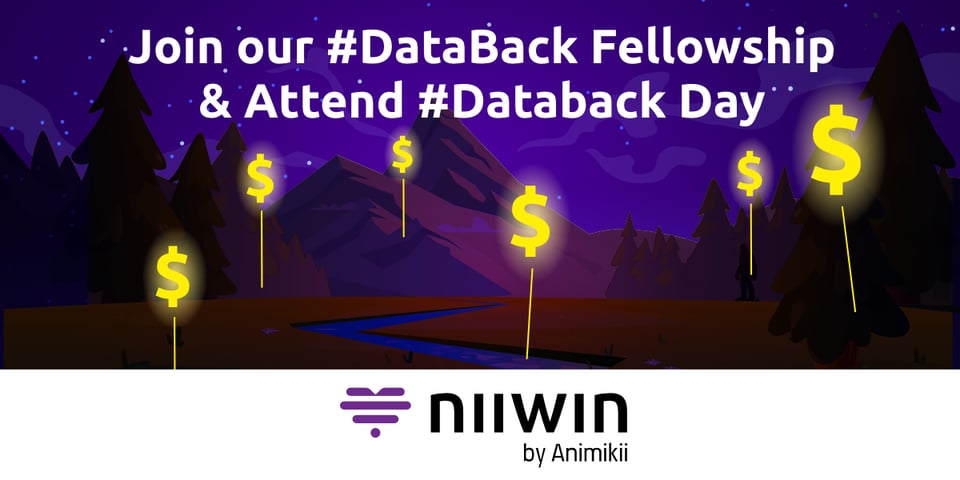Digital stewardship in the face of AI enclosure
Exploring the latest in Indigenous data sovereignty, the repurposing of First Nations' personal info, and data's role in reconciliation.

Boozhoo News River Readers,
Every week, we hand-pick the most important stories in Indigenous innovation, research, and technology. Stay connected to what matters.
If you learn something new from the stories in this week’s News River - invite others to join the conversation - forward this email to a friend or colleague!
This week’s stories include:
Growing concerns emerge regarding the repurposing and secondary use of First Nations personal information.
“Demography is much more than data points on a page and lines on a graph, it’s about people”.
Webinar: Indigenous Data Sovereignty: The Missing Piece in Reconciliation

Digital protection, stewardship, and sharing done right
The big picture: Today Jeff Ward is moderating an important discussion with our friends at SEEKCommons, a project sponsored by the U.S. National Science Foundation. It’s about supporting digital sovereignty in the face of AI enclosures. The panelists will explore tensions in the debate concerning digital infrastructures, collective ownership, Indigenous data protection, corporate data hoarding, and intellectual property rights.
Why it matters: After this event, a white paper will be developed and released via SEEKCommons. Each panelist will be sharing examples of resistance in their own work and in the context of their own communities, while establishing parallels with other sites in this common struggle for autonomy and self-determination that has been extended to the digital realm.
Key points:
Projects that adopt the care principles from the ground up are integrating Indigenous rights into data infrastructures (see: Operationalizing the CARE and FAIR Principles)
Capacity building is also required for communities to be able to implement, steward and sustain data projects.
Right relationships are critical to stewardship and right governance, and ongoing relationship building requires trust and time.
What they’re saying: Animikii’s first ebook #DataBack: Asserting and Supporting Indigenous Data Sovereignty is cited in the references provided by the organizers of this conversation.
Learn more: Watch NewsRiver for the upcoming white paper - we’ll share it here once published! In the meantime, learn more about Niiwin, the platform Animikii built to manage Indigenous data, and how to join the new #DataBack Fellowship.
Curated Articles:
Indigenous Data Sovereignty: The Missing Piece in Reconciliation
What if data wasn’t something we owned, but something we were in relationship with? Learn about the importance of Indigenous Data Sovereignty and why it is necessary for true reconciliation in this webinar: Indigenous Data Sovereignty: The Missing Piece in Reconciliation. Join us for insightful discussions, engaging information, and actionable takeaways with experts Janis Brooks (Salishan Solutions) and Chelsea Nakogee (Wabusk Data Solutions). Learn about the importance of respecting Indigenous rights to data and how treating data as a living relation reminds us of the human impact of data management. Don't miss this opportunity to be part of the conversation and take the next steps on your data empowerment or reconciliation journey.
2025 Te Rangi Hiroa Medal: Making people count with demography and data sovereignty
Professor Tahu Kukutai FRSNZ (Ngāti Tīpā, Ngāti Mahanga, Ngāti Kinohaku, Ngāti Ngawaero, Te Aupōuri), of Te Whare Wānanga o Waikato – the University of Waikato, has been awarded Te Rangi Hiroa Medal for world-leading research on Indigenous data sovereignty and Indigenous demography, and for distinguished contributions to these disciplines globally. Combining sociological theory and demographic methods, Tahu has been able to use large datasets to explore social and economic issues, including wellbeing for Māori communities. She co-edited the first scholarly work to develop the concept of Indigenous data sovereignty. This has been globally influential, informing practical applications to avoid harmful use of data and enabling communities to contribute to and benefit from their own data. Tahu says that her research is about “making people count”. “Demography is much more than data points on a page and lines on a graph, it’s about people. And the data systems that underpin that are fundamentally about people.”
Data repurposing, algorithmic bias and Indigenous privacy in the age of AI
Artificial intelligence is increasingly transforming business operations and has significant potential to benefit society, yet its advancement introduces serious risks, particularly for marginalized communities like Indigenous peoples, where repurposing data for AI applications raises complex ethical, legal and privacy issues — especially concerning data sovereignty. Canada is the ancestral land of numerous Indigenous groups, each possessing their own cultural, historical and traditional values. Indigenous data refers to any information affecting Indigenous lives at collective and individual levels, including information related to health, finances, socioeconomic conditions, lands, resources, history and culture. First Nations data sovereignty encompasses not only personal data, but also community and cultural information, including images of sacred objects, traditional stories, art, and, broadly, any data related to the nation, its people, lands, resources, programs and communities. Growing concerns have emerged regarding the repurposing and secondary use of personal information.
This AI tool aims to show the true scale of Canada’s $100B Indigenous economy
Artificial intelligence could be key to measuring the Indigenous economy and recognizing its full value, Indigenous leaders and policymakers said at a Toronto conference on Friday. Panels highlighted how Indigenous communities are building economic power through direct ownership of critical infrastructure, growing entrepreneurship, and the role of AI. Carol Anne Hilton, CEO of the Indigenomics Institute said traditional frameworks used to measure economic activity—particularly GDP—do not substantially reflect the scale and complexity of Indigenous financial participation to the overall economy. Hilton developed an AI-powered platform that quantifies Indigenous economic activity and shows how economic value is created in the digital age. Indigenomics and Telus announced in October that the dashboard will use Telus’s computing power to keep Indigenous data and intellectual property secure.
Dreams, desires and the digital world: Developing critical data literacy in teens
Today’s teenagers are in a unique position in history. Born into the information age, they have known no other reality than one mediated by data-driven systems—systems that monitor, predict and influence their behavior. However, online interactions rarely fulfill teens’ real social needs, leaving them vulnerable to manipulation and exploitation through their personal data. Teens can benefit from guidance on navigating the complexities of the data economy and should be taught to think critically while engaging online. Simon Fraser University professor William Odom’s Homeware Lab, based in SFU’s School of Interactive Arts and Technology (SIAT), explores the design of new Internet of Things technologies and objects. Their “slow technology” projects are thoughtful and playful, challenging the current digital economy by suggesting alternative perspectives on life and environments through interpretation, reflection and social connection. The team is conducting research to better understand how teenagers use technology and to promote data literacy. Their work aims to use design as a form of inquiry to prepare people to ask critical questions about data, like how it is collected and used, who it benefits, and how digital process might be redirected and reimagined.

Add a comment: